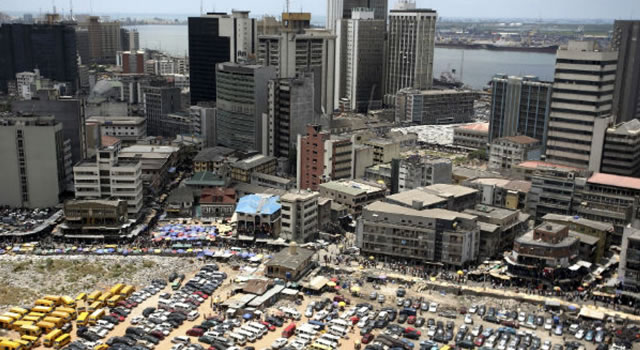Business
LCCI calls for urgent diversication of Nigeria’s economy

The Lagos Chamber of Commerce and Industry has called on the Federal Government to expidite action on the diversification of the Nigerian economy.
According to the chamber, this has become imperative because of the challenges facing the economy as a result of the recent downward trend in prices of crude oil in the international market.
The prices of crude has continued its free fall of recent and it currently below the benchmark for the 2019 budget put at $60 per barrel.
The LCCI, in its 2019 economic outlook released on Friday, said there was a need for some adjustments to forestall any impending shock and the risk of the country sliding into another recession.
The report, signed by its Director General, Mr. Muda Yusuf, the LCCI noted that given the challenging economic conditions, key policy reforms would be imperative to support and sustain macroeconomic stability.
The policy reforms, the chamber wants government to give priority include a foreign exchange management framework that reflects the market fundamentals, the acceleration of the economic diversification agenda, normalisation of Lagos ports environment and the oil and gas sector reform, (especially the Petroleum Industry Bill).
The chamber also listed the reduction in the cost of governance at all levels, and the improvement in the domestic revenue (particularly independent revenue) to reduce volatilities of government revenues, pointing out that the Nigerian economy had remained fragile with the high dependence on the oil sector for revenue and foreign exchange earnings.
Read also: Market capitalization drops N100.2bn as banking, industrial stocks record losses
“Although oil revenues increased with recovering oil prices in 2018, the impact on the economy was subdued by the huge foreign exchange commitments to petroleum product importations and the inherent subsidy. The high debt service obligations were also major constraints to the growth of the economy.
“With the limited progress in the ongoing effort to diversify government revenue sources, the performance of the oil and gas sector would remain a critical factor that would shape the outlook of the economy in 2019.
“According to estimates by Capital Economics’ analysts, every $10-per-barrel fall in oil prices will cause a three to five per cent decline of the Gross Domestic Product in most of the Gulf economies, and a slowdown of 1.5 to two per cent of GDP in Russia and Nigeria on an annualised basis”, the chamber said in the report.
The LCCI further said the outlook will depend to a large extent on developments in the oil and gas sector and the political will to undertake far-reaching reforms, beginning with the oil and gas sector.
Join the conversation
Support Ripples Nigeria, hold up solutions journalism
Balanced, fearless journalism driven by data comes at huge financial costs.
As a media platform, we hold leadership accountable and will not trade the right to press freedom and free speech for a piece of cake.
If you like what we do, and are ready to uphold solutions journalism, kindly donate to the Ripples Nigeria cause.
Your support would help to ensure that citizens and institutions continue to have free access to credible and reliable information for societal development.
























